「これで年越しの準備はばっちり!」
= これでとしこしのじゅんびはばっちり!
= Korede toshikoshi no junbi wa bacchiri!
= Now I am all set to ring out the old year (and ring in the new year).
Hi everyone!! We only have a few days left this year.
So today I will teach you one easy line that you can use until end of the year.
よいお年をお迎え下さい。
= よいおとしをおむかえください。
= Yoi otoshi wo omukae kudasai.
= Please have a good (new) year./Happy New Year!
•よい = yoi = good
•お年 = おとし = otoshi = year (By adding お it will make it more polite.)
•を = wo = object marker
•お迎え下さい。 = おむかえください = omukae kudasai = to have, to prepare
![]() from a verb 迎える = むかえる = mukaeru = to welcome, to have, to greet, to meet
from a verb 迎える = むかえる = mukaeru = to welcome, to have, to greet, to meet
Ex. お客さんを笑顔で迎える
= おきゃくさんをえがおでむかえる
= Okyaku san wo egao de mukaeru
= to greet customers with a smile
Ex. 25歳の誕生日を迎える
= にじゅうごさいのたんじょうびをむかえる。
= nijuugosai no tanjoubi wo mukaeru
= to reach one’s twenty-fifth birthday
Ex. 春を迎える
= はるをむかえる
= haru wo mukaeru
= to welcome spring
verb : 迎える= むかえる = mukaeru →(more polite) お迎えする = おむかえする = omukaesuru
Note: Sometimes we omit お迎え下さい。 = おむかえください ( = Omukae kudasai ) and just say
「よいお年を 」= よいおとしを = yoi otoshi wo.
🔹 The translation of
「よいお年をお迎え下さい。」
= よいおとしをおむかえください。
= Yoi otoshi wo omukae kudasai.
can be Happy New Year but unlike English, you can’t say this phrase once a new year has started.
We only say or write this phrase in December when you say goodbye.
“OK, then, happy new year!”
![]() Ex. それではよいお年を(お迎え下さい。)
Ex. それではよいお年を(お迎え下さい。)
= それではよいおとしを(おむかえください。)
= Soredewa yoi otoshi wo (omukae kudasai.)
![]() Ex. それじゃあよいお年を! (casual)
Ex. それじゃあよいお年を! (casual)
= それじゃあよいおとしを!
= Sorejaa yoi otoshi wo!
We say this to a person when we think we won’t see them again until next year from the middle of December until the end of the year, not usually early in December.
If we feel it is too early to say this but we think we won’t see the person again in December, we say,
「少し(or ちょっと)早いですが、よいお年をお迎え下さい。」
= すこし ( or ちょっと)はやいですが、よいおとしをおむかえください。
= Sukoshi (or Chotto) hayai desu ga yoi otoshi wo omukae kudasai.
= It is a little early but please have a great year!
Once a new year has started, we don’t say
よいお年を(お迎え下さい。) = よいおとしを(おむかえください。)= Yoi otoshiwo (omukae kudasai).
Instead, we say,
⭐️明けましておめでとうございます。
= あけましておめでとうございます。
= Akemashite omedetou gozaimasu .
= Happy New Year!
********************************
Now, before we say
「よいお年を(お迎え下さい。)」
= よいおとしを(おむかえください。)
= Yoi otoshi wo (omukae kudasai),
we often say these lines as well.
![]() 「今年もいろいろお世話になりました。」
「今年もいろいろお世話になりました。」
= ことしもいろいろおせわになりました。
= Kotoshi mo iroiro osewani narimashita.
= Thank you for everything you have done for me this year.
![]() 「また来年も宜しくお願い致します。」
「また来年も宜しくお願い致します。」
= またらいねんもよろしくおねがいいたします。
=Mata rainen mo yoroshiku onegai itashimasu.
=Thank you in advance for all your support for this coming year.
📝 Note : Once a new year has started, we say
今年も宜しくお願い致します。
= ことしもよろしくおねがいいたします。
= Kotoshi mo yoroshiku onegai itashimasu.
= Thank you in advance for all your support for this (coming) year.
***********************************
In the old Japanese calendar, December is called 師走 = しわす = shiwasu
We still refer to this time of year as 師走 = しわす = shiwasu
The kanji for 師 ( = し = shi) means “teachers, or masters” and 走(る)= はし(る)・そう = hashi(ru)/sou means “to run”
So please remember this word picturing Maggie “Sensei” is running in December!
Japanese people often say around this time of the year,
「年末(or 師走)は、ばたばたして忙しいです。」
= ねんまつ( or しわす)は、ばたばたしていていそがしいです。
= Nenmatsu (or shiwasu) wa batabata shite isogashii desu.
= It is very hectic at the end of the year (or in December).
•年末 = ねんまつ = nenmatsu = end of the year
•ばたばた = batabata = onomatopoeia to describe someone in a hurry or busy
•忙しい = いそがしい = isogashii = busy
📝Cultural note : How we spend 年末 = ねんまつ = nenmatsu = end of the year
We are busy because we have to do many things.
🔹大掃除 = おおそうじ = oosouji = general house cleaning
I’ve heard you do spring cleaning in the U.S., but in Japan, we want to welcome the new year in a clean house so we do
大掃除 = おおそうじ = oosouji= general house cleaning (The kanji literally means “big cleaning.” in December prepare for お正月 = おしょうがつ = oshougatsu = New Year’s Day for example, by buying special New Year’s decorations
🔹しめ飾り=しめかざり = shimekazari = the decoration you put at the door or car
🔹(お)鏡餅 = (お)かがみもち = (o)kagami mochi = decorative round pounded mochi for New years.
🔹 お節料理 = おせちりょうり = osechi ryouri = special New Year’s food prepared in square boxes.
Also, we have to finish writing
🔹 年賀状 = ねんがじょう = nengajou = new year’s cards and post them in December.
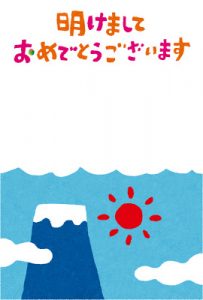
Also, at this time of the year, people throw a lot of
🔹 忘年会 = bounenkai = end-of-the-year party with their colleagues, friends, etc.
![]() 忘 (れる)=わす(れる)= wasu(reru) = to forget
忘 (れる)=わす(れる)= wasu(reru) = to forget
![]() 年 = とし/ねん = toshi/nen = year →
年 = とし/ねん = toshi/nen = year →
![]() 会 = かい = kai = gathering, party
会 = かい = kai = gathering, party
→A party to forget about what you have suffered from through the year.
You will see a lot of TV commercials for stomach medicine preparing for this 忘年会 = ぼうねんかい = bounenkai season
December 31st is called
![]() 大晦日 = おおみそか = oomisoka = New Year’s Eve
大晦日 = おおみそか = oomisoka = New Year’s Eve
In order to
年を越す = toshi wo kosu = to see the old year passing, to cross a year
we customarily eat 年越し蕎麦 = としこしそば = toshikoshi soba = “year-crossing Japanese noodles” on New Year’s Eve.
You have to eat it before January 1st.
⭐️From the picture above,
「これで年越しの準備はばっちり!」
= これでとしこしのじゅんびはばっちり!
= Korede toshikoshi no junbi wa bacchiri!
= Now I am all set to ring out the old year (and ring in the new year).
Maggie Sensei is ready to eat Soba noodles!
• これで = korede = with this, like this
• 年越し = としこし = toshikoshi = to see out the old year and welcome in the new year.
• 準備 = じゅんび = junbi = preparation
• ばっちり = ばっちり = bacchiri = perfect, great (colloquial)
It used to be a big deal for Japanese people to watch NHK TV’s 紅白歌合戦 = こうはくうたがっせん = kouhaku utagassen = Red and White Grand Song Festival (Red represents female singers and white represents male singers) on New Year’s Eve but their ratings have been decreasing in recent years due to competition from many more fun TV shows. There are now many more New Year’s Eve choices for television audiences.
At midnight, people listen to 除夜の鐘 = じょやのかね = joya no kane = the sounding of temple bells. They stroke 108 times in accordance with the number of our 煩悩 = ぼんのう = bonnou = worldly desires to remove them. They broadcast the sounds of bells from temples all over Japan.
Many people go to 初詣 = はつもうで = hatsumoude = first visit of the shrine or temples from the middle of the night on New Year’s Eve.
Note : Check my New Year’s Lesson)
 マギー先生より = Maggie Sensei yori = From Maggie Sensei
マギー先生より = Maggie Sensei yori = From Maggie Sensei
マギーのサイトは皆さんの愛で支えられています。
= マギーのサイトはみなさんのあいでささえられています。
= Maggie no saito wa minasan no ai de sasaerarete imasu.
=Maggie Sensei’s site is supported by your love.
これまでの皆さんの温かい応援に心から感謝しています。
= これまでのみなさんのあたたかいおうえんにこころからかんしゃしています。
= Koremade no minasan no atatakai ouen ni kokoro kara kansha shiteimasu.
= I sincerely appreciate all your warm support up to now.
どうかこれからも宜しくお願いします。
= どうかこれからもよろしくおねがいします。
=Douka korekara mo yoroshiku onegai shimasu.
= Thank you in advance for your continued support.
そしてよいお年をお迎え下さい。
= そしてよいおとしをおむかえください。
= Soshite yoi otoshi wo omukae kudasai.
= And have a Happy New Year!!
Love, ❤️
***
Will you be my Patron?
I appreciate your support! サポートありがとう!

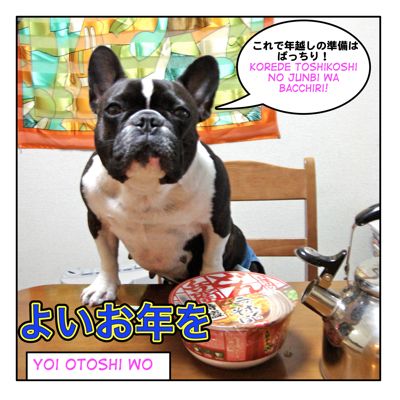
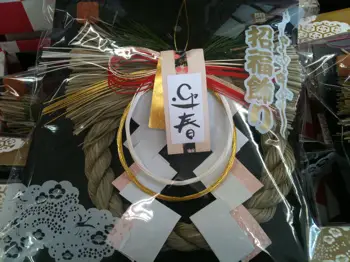

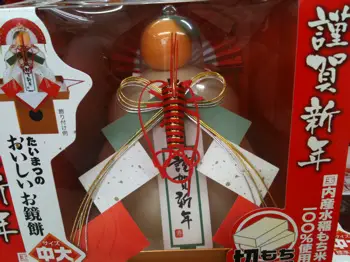
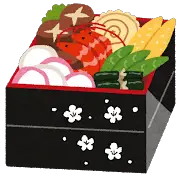
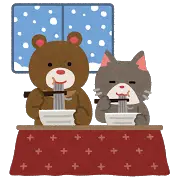
20 Comments
Thankyou for the onlibne teaching . Has helped me a lot! :) … am studying japanese language for 1 year now and your site is one of my source if I need to seek further understanding about a subject.
@alexandra susie
Hello Alexandra,
Happy New Year!!! I’m very happy to hear you have been using my site for a year.
I will make more and more lessons for you this year!!
btw, Can you provide more detail regarding use of yoroshiku onegai shimasu. Can Itsumade mo be used, as well as korekara mo? In particular, with teachers, managers or Senior colleagues, can you provide a variety of applications? Itsumade mo yoroshiku! PK
@pkbos
Hum…いつまでも宜しくお願いします。It is possible to say that but it is much more common to say “これからもよろしくお願いします。”
If you want to add the feeling of “for a long time from now.”, you can say
これからもずっとよろしくお願いします。
in business letter, it will be more formal and polite
今後共、宜しくお願い申し上げます。
= Kongotomo yoroshiku onegai moushiagemasu.
or
今後共、末永く宜しくお願い申し上げます。
= Kongotomo suenagaku yoroshiku onegai moushiagemasu.
Thank you so much for this site! Your explanations are perfect. I studied & lived in Japan 20 years ago, and have lost most of my fluency. However, phrases & basic conversation remains, but is jumbled. The expanse of situations you cover has helped me time & again. Taihen kansha shite imasu! (Is it ok to use Taihen instead of totemo, for emphasis, or is the connotation strange?) – PK
@pkbos
Hi, pkbos!
I am very happy to read your comment. ありがとう!!
Yes, you can say 大変感謝しています。= Taihen kansha shiteimasu. It is used in more formal or business situation though.
よいお年をお迎え下さい。
Happy New Year, sensei! my new year resolution is to study all of your lessons^^ wishing you and your family well into the new year and beyond^^
@Top
Thank you for your nice message!!!
Hehe I hope you keep up your new year’s resolution.
The same to you! よいお年をお迎え下さい。そして来年がTopさんにとって素晴らしい年となります様に! !happyface!
Dear Sensei,
This is the first time I visit your website to learn “How to say Happy New Year in Japanese”. Your lesson is very interesting. Thank you very much for your work. From now on, this website is surely my close friend ;-)
Wish you a Happy New Year,
Yoiotoshii o omukaekudasai!
Han
@Han
Thank you for visiting this site!
Great! That means I now have a new friend here! :)
どうぞよいお年(とし)をお迎(むか)えくださいね!
来年(らいねん)もよろしく!
今年もいろいろお世話になりました,マギー先生!
i love the new year, becuse my birthday is on the 4th day of the 1st month!
@sagi arie
Oh, Hi, sagi!! Thank you for checking the lesson and leaving the comment.
How exciting! You can celebrate New Years and your birthday soon!!!
よいお年を!Sagi!
Thank you so much for this great lesson!
I learned a lot ^^Y
I hope you’re having a wonderful time!
Happy new year Y^0^Y
@Kabo
This is the first comment of the year!! Thank you!!
Happy New Year!!!!
説明が分かりやすくて本当に助かりましたっ!
Please keep up with this site and continue to post up new things for us to learn!
これからも応援しますっ!
ありがとうございました!(´▽`*)
@ひめか
(^0^ゞ 了解!
来年もがんばっていっぱいレッスンを作りますね。
よいお年を、そして来年もヨロシクお願いします!!
Thank you so much, sensei, for creating this web site. I haven’t been here for a while. Happy New Year and hope you get a ton of subscribers in the new year.
よいお年を。。。^^
oh..just wondering in this case, how come we don’t say 迎えてください??
@Top
Thank you, Top-san!! Haha more than having a tons of subscribers, I hope you keep coming to this site! :)
お迎え下さい is more polite but you can say よいお年を迎えて下さい。too.
Same to you, よいお年を
Thank you for everything you have done for all actioneers this year!
Thank you in advance for all your support for this coming year!
I haven’t done a general house cleaning and cooked “Osechi” yet but I have an end of year party with my friends tomorrow night!
Anyway, HAVE A HAPPY NEW YEAR!!!
@Tamago,
Heeey, Tama-chan! Thank YOU for your support,too!! I finished “oosouji”. Feel very clean now!
Have fun tomorrow and Happy New Year,2U2!!!